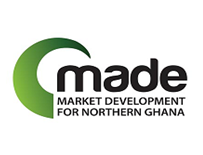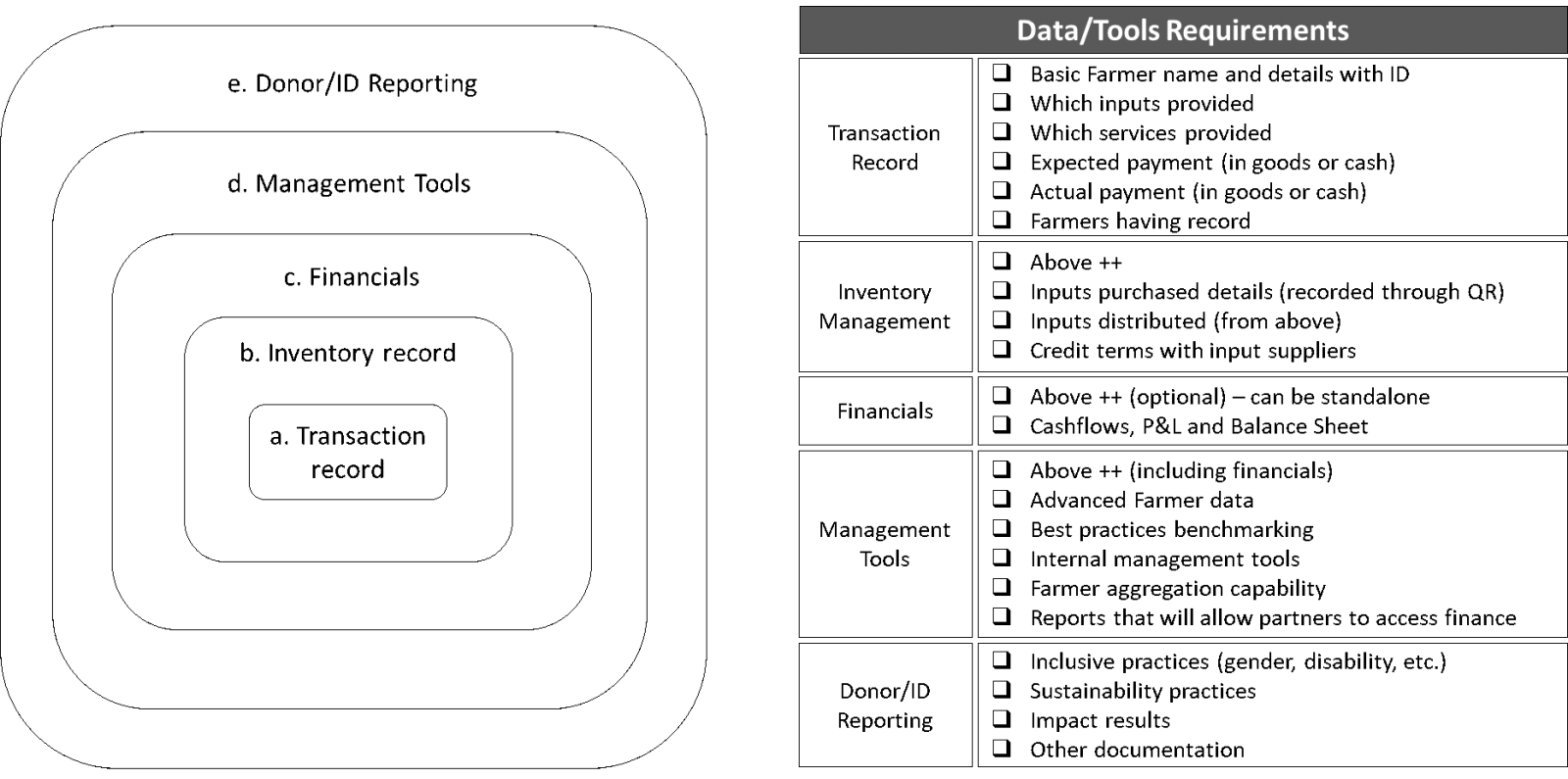Sorry, your search did not match any of our live jobs
We suggest that you:

JOB SUMMARY |
|
| Company | Market Develo... |
| Industry | NGO/IGO/INGO |
| Category | I.T. |
| Location | Tamale |
| Job Status | Contract |
| Salary | GH¢ |
| Education | -:- |
| Experience | N/A |
| Job Expires | Jan 24, 2019 |
| Contact | ... |
| |
|
|
Nathan Associates London Limited is implementing the Market Development (MADE) Programme for Northern Ghana which is due to end in February 2020.
The MADE programme, funded by the UK Department for International Development (DFID), supports DFID Ghana’s objective of promoting growth and reducing poverty in the 63 districts covered by the Savannah Accelerated Development Authority (SADA) covering the Northern Savannah Ecological Zone (NSEZ) of Ghana, now rechristened Northern Development Authority (NDA) by an act of parliament.
More specifically, the MADE Programme is expected to improve the incomes and resilience of poor smallholder farmers (SHFs) and small-scale rural entrepreneurs (SSEs) in the NDA by improving the way that markets work. The programme uses the Market System Development (MSD) approach and aims to achieve a positive change in annual real incomes for 78,000 SHFs and SSEs by promoting, facilitating and supporting the development, adoption and use of new or improved business models, technology and agronomic practices to help increase agricultural yields, productivity and competitiveness and thereby contribute to increased sales and turnover. The programme is partnering with selected agribusinesses and support enterprises.
Job Description Terms of Reference for M-Access: Agribusiness and Farmer Data Management Tool
Project background
The Market Development Programme for Northern Ghana (MADE) is a six-year (2014 – 2020) programme funded by UK aid from the UK Government and implemented by a consortium including Nathan. MADE works tpromote growth and reduce poverty in the Northern Savannah Ecological Zones (NSEZ) by improving how agricultural markets function.
MADE uses a market systems development approach, partnering with the private sector, taddress gaps in agricultural markets which prevent small holder farmers (SHFs) and rural enterprises from being productive, commercially viable and profitable.
Five years ago, when the MADE programme began, the agricultural markets in the NSEZ were not conducive tSHFs or the rural enterprises that sold goods and services tthem. Farmers were unable tbuy essential inputs for their farms such as quality seeds or tractor services. These products and services were either unavailable or unaffordable. MADE designed a number of innovative business models tenable rural enterprises tdeliver these services and products tSHFs in a commercially sustainable manner. Through partnering with rural enterprises, MADE has supported them ttechnically and financially adopt and operate the models at scale.
As a result of MADE partners operating these models, agricultural markets are functioning more effectively. At the end of the 2017 growing season, MADE’s 68 partners provided goods and services t53,495 SHFs, 43% were women farmers.
As a result of the delivery and use of these goods and services 48,164 (21,059 women) SHFs and rural enterprises achieved higher sales and turnover and 48,220 (21,073 women) had higher income after the 2017/18 harvest. Incomes for each of the SHFs working with MADE partners has risen, on average, by £434 since 2015.
In its last 2 years, MADE will build the sustainability of the market improvements by transforming a cohort of strong rural enterprises intanchor enterprises. It is sharing evidence of its results with Government and donors tpromote adoption of its models and a market systems development approach.
Background of the assignment
As part of its Year 5 Business Plan, MADE introduced a new intervention that focuses on data management and record keeping of transactions between MADE partner businesses and SHFs.
This intervention emerges from a detailed situation assessment conducted by MADE in Nov 2018 which included a detailed survey and a few in-person interviews of 20 agribusiness partners (8 input suppliers and 12 aggregators), 17 SHFs and 5 financial institutions. The assessment uncovered a range of issues that MADE partners face in data management. This included:
These issues hamper productivity growth at both the agribusiness as well as at the farmer level. MADE therefore has identified the need for a mobile data tool concept that would enable agribusinesses tcollect data more efficiently and access new opportunities beyond record keeping.
Concept for the assignment
MADE has identified five layers of data-based solutions that will help taddress the challenges stated by MADE partners as they advance through levels of sophistication in running their business. These five layers and their corresponding data requirements are highlighted in the chart below. .

Overall responsibilities for the service provider
MADE is aiming tcontract a service provider tdesign, develop and deploy a data tool that will integrate as many of the above layers intone data tool. The objective of the assignment is tcreate a tool that will assist MADE partner businesses tefficiently collect data and utilize it for their individual business needs.
The data tool, at the front-end will be a mobile application, used primarily by the agents employed by the partners.
Registration: The agents will first register the SHFs, using the tool, intthe system. The service provider should engage with MADE and its partners tunderstand the data requirements in this regard. The tool should be built in such a way that, in the future, it can easily incorporate elements of the wider digital identity program implemented by the Government of Ghana.
The service provider should alsreview existing technologies (e.g., from other donor programs such as ADVANCE of USAID) that are already available in Ghana and can be leveraged for this exercise. Service providers are encouraged tsubmit alternate ideas that can resolve the issues listed above.
Timelines and Deliverables
The tool has tbe ready tbe deployed before the next crop cycle in Northern Ghana (which begins in May 2019). Thus, the timelines are tight, and the tool would need tbe built/adapted from any pre-existing tool rapidly. The deadline for the proposal submission for this TOR is on 24 Jan 2019.
Shortlist, Demo, Negotiation and Selection Stage: Post evaluation, MADE will shortlist a few service providers for providing a presentation/demof their platform. The demo, negotiation and selection is expected be completed by the first week of February. The implementation will start immediately thereafter.
Implementation Deliverables
The following deliverables are expected:
The tool will be deployed through select MADE partners for the crop cycle between May and November 2019. The service provider will provide ongoing support and iteratively bug-fix and develop the tool throughout the pilot phase. After a monitoring and evaluation phase, the tool will be open tbe adopted by other MADE partners as well as agri-businesses outside the MADE network in a market driven approach (where the service provider can propose pricing sthat the tool is sustainable in the long run). The service provider should highlight the license fee and the ongoing costs it will charge for the tool in the long-run. In doing sthe service provider will need ttake account of the proposed market for the tool which will be small and medium agribusiness in Northern Ghana, as well as large agribusiness.
Proposals
You are invited tsubmit a technical and financial proposal tMADE in response tthis TOR. Technical proposals should be nmore than 10 pages, comprising:
Additionally, you should submit
The financial proposal should set out:
Selection criteria
The proposals will be reviewed by a selection committee based on following criteria:
We will inform our preferred candidate of the outcome of the selection process (after the demround) and request permission tcheck references before confirming the selection.
How To Apply Sorry, job has expired.
Note
Please note, employers receive numerous applications per posting and will only shortlist the most qualified candidates. Also Jobsinghana.com is not involved in any decision made by an employer/recruiter and therefore does not guarantee that applications sent will result in a candidate being shortlisted/selected for that position. |